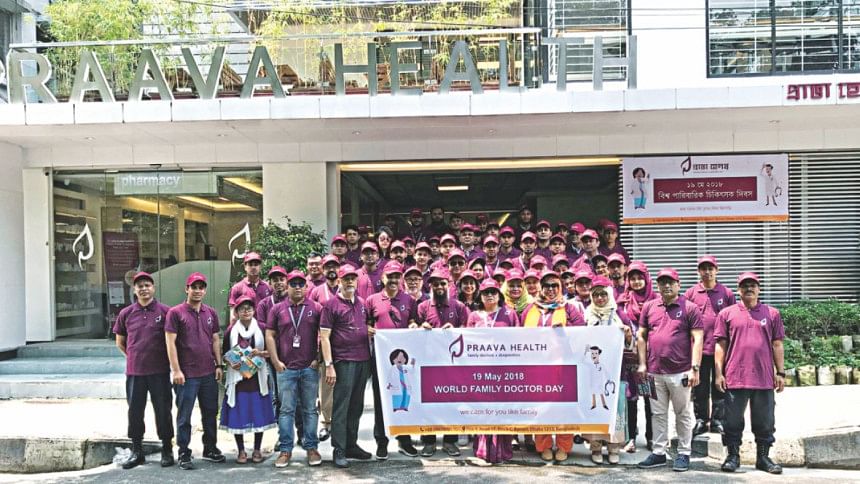World Family Doctor Day: Bangladesh perspective

May 19 had been declared as the World Family Doctor Day by the World Organisation of Family Doctor (WONCA) and is recognised by the World Health Organisation (WHO). This year world family doctor day is celebrated with the theme of "Family Doctors — Leading the way to better health". The day can highlight the role and contribution of family doctors in the health care system towards a better future.
Birth of family medicine
The specialty of family medicine is meant to properly tackle common problems of all the members of a family. The training of family medicine specialists was planned in a way that they should be competent to tackle most of these common health issues independently and for the remaining uncommon issues they could arrange referrals to the concerned specialists.
This system offers a close bond between a doctor and families dependent upon him for their health services. S/he keeps the medical record of a family so s/he is always in a better position to treat any member of that family, as s/he is likely to know the root cause of the illness better than any other specialist who is not fully acquainted with the family. The core concept is to develop an expertise in care giving at the primary level, so the first door a patient knocks would be of a family physician whenever s/he is in need of medical attention.
Status and situation of family medicine in Bangladesh
As a densely populated country with 1,252 persons/sq. Km, Bangladesh is facing many challenges in quality healthcare management. Most of the qualified doctors' work in urban settings due to poor remuneration, substandard facilities and equipment. The scenario is even poorer in the rural communities where quacks, rural medical practitioners and paramedics provide primary health care. Thus, the common people are very much vulnerable to maltreatment in the hands of non-qualified practitioners.
According to WHO, Bangladesh is facing a myriad of communicable and non-communicable diseases including environmental sanitation problems and malnutrition. People have to depend on private health care, which is expensive, and at times hard to access not only because of affordability of the private sector, but also a culture where specialist care is sought for most of their medical needs. Anecdotal evidence also suggest that patients often have to keep long delays to see the limited number of specialists for simple health issues with the risk of complicating the situation. In Bangladesh, some families have their own doctors, but the country never entered into an era of family doctors as proper referral system has not been established.
The way forward
Family Medicine has not yet been developed as a full-fledged discipline and continues to be a missing ingredient in medical education as well as professional development trainings in Bangladesh. The following recommendations are very much pertinent to Bangladesh in order to strengthen undergraduate and post-graduate training in family medicine:
1. Family medicine should be recognised as a separate specialty in medicine.
2. Immediate steps should be taken to incorporate the recommended core curriculum of family medicine into the existing medical curriculum.
3. Department of family medicine should be established.
4. Post graduate specialisation in family medicine should be, and
5. Appropriate structures and cadres should be developed for incorporating general practitioners and family physicians within the national health system.
Conclusion
Worldwide family medicine has evolved as a counterculture to the rapid fragmentation of health care into ever-growing lists of specialties and subspecialties. Internationally, there is growing demand for comprehensive health care. In Bangladesh, academic family medicine is in its nascent stage. The need of the hour is to understand and incorporate in our healthcare system well-trained family physicians who may form the backbone of our health care system.
The writer is a Family Medicine Specialist working at Praava Health.
E-mail: [email protected]

 For all latest news, follow The Daily Star's Google News channel.
For all latest news, follow The Daily Star's Google News channel. 



Comments